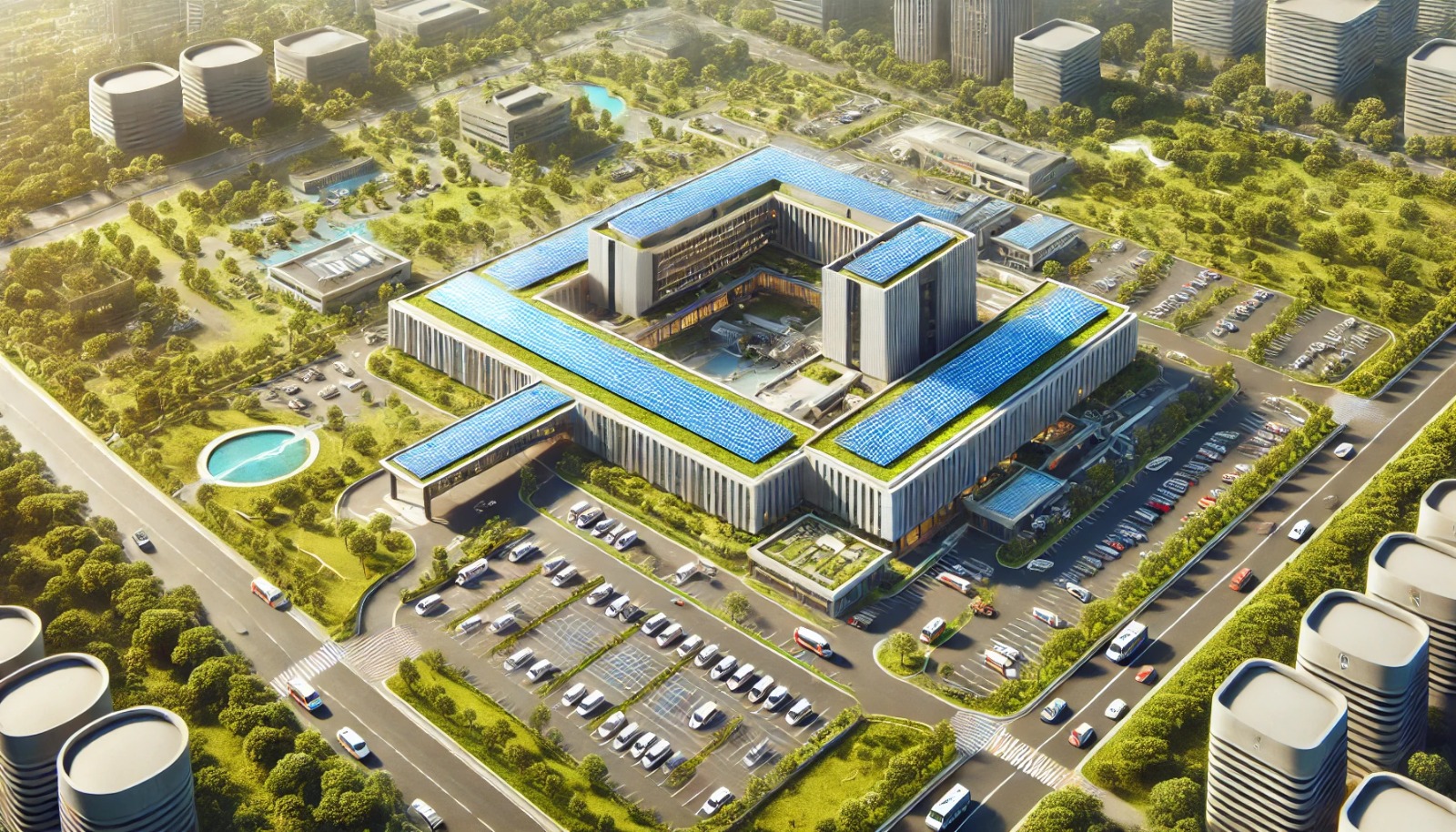
BENEFITS OF SOLAR POWER SYSTEM AT HOSPITALS AND HEALTHCARE FACILITIES
The adoption of solar power systems in hospitals and basic healthcare facilities can offer numerous benefits, significantly impacting sustainability, cost-efficiency, and patient care. Here are some key advantages:
1
Cost Savings
Reduced Energy Bills: Hospitals
can reduce their electricity
costs significantly by harnessing solar energy, which can free up funds for other critical
services and operational needs.
Tax Incentives and Rebates: Many
regions offer
financial incentives for solar installation, such as tax credits or rebates, further
lowering the initial investment costs.
2
Reliability and Energy Independence
Backup Power Supply: Solar energy
systems, especially when
paired with battery storage, provide a reliable source of energy, reducing dependence on the
grid and ensuring that essential medical equipment operates continuously during power
outages.
Energy Independence: By generating their own electricity,
hospitals can insulate themselves
against fluctuations in energy prices and availability.
3
Sustainability and Environmental Impact
Reduced Carbon Footprint: Solar
power is a clean, renewable
energy source that reduces greenhouse gas emissions, contributing to a healthier environment
and promoting sustainability.
Corporate Social Responsibility:
By adopting renewable energy, hospitals can enhance their image and demonstrate commitment
to sustainable practices.
4
Improved Patient Care
Uninterrupted Power Supply:
Consistent energy availability is crucial for life-saving equipment and emergency services,
enhancing patient safety and care outcomes.
Better Facility Functioning:
Improved energy efficiency can lead to better lighting, heating, and cooling in hospital
environments, positively affecting patient comfort and recovery.
5
Job Creation and Local Economy
Local Jobs: The installation and
maintenance of solar panels can create local jobs, stimulating the local economy while
providing employment opportunities in the renewable energy sector.
6
Scalability and Flexibility
Modular Systems: Solar power
systems can be scaled up or down according to the facility’s needs, making them adaptable
for different sizes and types of healthcare facilities.
Complementary Energy Solutions:
Hospitals can integrate solar power with other renewable solutions like wind or geothermal
energy, creating a hybrid approach for energy sustainability.
7
Educational Opportunities
Training and Research: Hospitals
using solar power can serve as educational platforms for training healthcare professionals
about sustainability in healthcare, fostering a culture of environmental responsibility.
8
Long-Term Financial Planning
Fixed Energy Costs: Investing in
solar power allows hospitals to lock in energy costs and reduce volatility associated with
traditional energy costs, aiding long-term financial planning.
9
Community Health Benefits
Promoting Renewable Energy: By
using renewable energy, hospitals can lead by example, encouraging other local businesses
and residents to adopt similar practices, which can have broader public health benefits.
10
Government and Institutional Support
Access to Grants and Funding: Many
government programs support renewable energy initiatives in healthcare, providing funding
opportunities for installations.
Solar power systems provide a wide array of benefits tailored
to the needs of hospitals and basic healthcare facilities, ultimately leading to improved
operational efficiency, enhanced patient care, and a commitment to sustainability.
